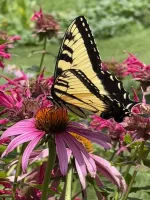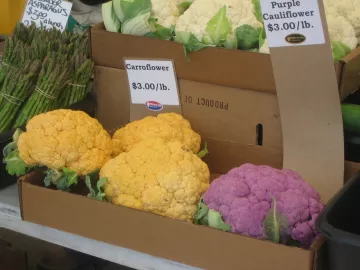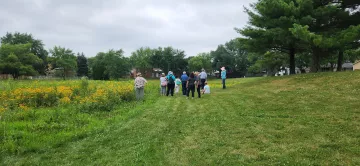Blog Post by DuPage Monarch Project Coordinator and River Prairie Group member Lonnie Morris
I grew up snacking on strawberries on my grandfather’s strawberry farm and munching on cucumbers, snapped right off of the vine in my family’s vegetable garden. As a college student, I made the most of my small apartment and grew herbs in window boxes and tomato plants in large pots, which I strategically placed in front of bright, sunny windows. As a homeowner today, I grow native plants and flowers, harvest homegrown vegetables, and tend to shrubs and trees in my yard.
None of the strawberries, cucumbers, or herbs that I have regularly enjoyed throughout my life would be possible without pollinators. Moreover, without bees, butterflies, and bats, our access to clean air, open space, and a livable planet would deteriorate.
Pollinator Week, the annual celebration in support of pollinator health, officially wrapped up on Sunday, but it’s never been more clear that the work to protect pollinators and their shrinking habitats must continue. Whether you’re a student, a young professional apartment-living in Chicago, or a homeowner in rural Illinois, you can take intentional action to help save the pollinators that help our planet thrive.
Check out these tips to learn how to take action to protect pollinators:
- Identify plants native to Illinois, incorporate them in your garden, and reduce the use of pesticides. According to the Bee Conservancy, “A safe habitat provides bees with the resources they need to survive, including abundant pollen and nectar sources, nesting sites, and shelter.” And, “Native plants are particularly important, as many native bee species have coevolved to feed exclusively on locally native blooms.” The same also applies to butterflies such as the Monarch—Illinois’ state insect. As you’re planning your garden or buying plants for your urban window box, check out this list of plants that are native to Illinois and incorporate them into your garden.

Photo courtesy of Jon Yeater.
- Checking out your local Farmers Market isn’t just a fun weekend activity, it helps support pollinators! Local farmers often participate in more sustainable farming practices like reduced tilling, cover cropping, and compost application. In addition, farmers that sell fresh and organic produce at local markets have to travel significantly less than the heavy-duty trucks that transport produce to supermarkets, which reduces your community’s carbon footprint. Altogether, supporting farmers also supports pollinators.

Photo courtesy of Lonnie Morris.
- Do you have a pollinator or native plant garden? Show it off to your friends, family, and neighbors! Talking about pollinators in your community can help educate folks about the importance of protecting bees, bats, and more. It can also inspire folks to take action. You can get creative with the ways you educate the community about pollinators — host a tour of your own pollinator garden, or host a pollinator themed picnic!

Photo courtesy of Darien Garden Club
- You can act as a “community scientist” and share critical data that will benefit biologists who are studying pollinators around the world. Simply by observing monarch butterflies and other wildlife throughout Illinois and notifying iNaturalist of your observations, you can help scientists and resource managers better understand pollinators, their habitats, and their behaviors. This data is critical to our work to learning tactics to best protect pollinators and their habitats.
- Last but not least, pollinators rely on a steady climate. In order to address our climate crisis and stabilize ecosystems, we must transition to a 100% clean energy future. Here in Illinois, we are taking meaningful steps to achieve that goal through the implementation of the Climate and Equitable Jobs Act (CEJA) and federal Inflation Reduction Act (IRA). Urge your federal, state, and local policymakers to prioritize an equitable transition to clean energy so that we can meet our clean energy goals, stabilize the climate, and protect pollinators.